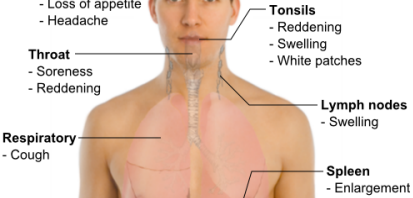
The Epstein-Barr virus, otherwise known as Human papillomavirus, is just one of eight known human papillomavirus types in the papillomavirus family, and is also among the most frequent sexually transmitted diseases in humans today. In fact, many people don't even realize that they are infected with the disease, since it only causes symptoms in approximately 20% of those who contract it.
The virus itself is a member of the group of viral pathogens that includes the herpes simplex virus (HSV), which is also one of the most prevalent sexually transmitted diseases. The virus affects the cells in the genital areas, which may lead to the development of warts and lesions on the genital parts of women.
Warts are not always visible or painful. They generally occur in clusters, either flat or at an angle in nature. Most commonly, the virus infects the skin, although the genitals and cervix may also be affected.
Symptoms may not show up until the virus reaches its final stages. In this stage, the body becomes immune to the virus and the body's defenses begin to attack the virus, making it unable to survive. As a result of this phase, symptoms such as painful burning during urination, painful sex, and discharge from the penis may develop. While these symptoms may initially occur, the body will eventually develop its own ability to cope with them.
In addition, other symptoms may also occur as the disease advances, such as headaches, fever, fatigue, loss of appetite, memory problems, nausea, vomiting, jaundice and skin rashes. The severity of these symptoms can vary, depending on the amount of time that has passed and the health and age of an individual, but all of them should be evaluated by a doctor as soon as possible.
People who are sexually active may become infected with the virus through vaginal, anal, oral or anal sex. This may result from any number of sexual activity: male to female, male to male or female to female, or female to male, including oral and anal sex.
Because the virus is transmitted sexually, people who are not currently infected with the virus may develop immunity if they practice safe sex and use contraceptives or other medications that suppress the immune systems of their bodies. However, even when immunity is not an issue, there may still be a risk of contracting the disease due to the fact that some types of sexual contact may increase the risk of developing the virus.
Also, some sexually transmitted diseases can affect the immune systems of women and men alike

If you have been infected with the virus and are having symptoms, and have had sexual partners, the first step is to get tested as soon as possible. A full medical examination may be necessary for the diagnosis of sexually transmitted diseases, especially since it is a type of sexually transmitted disease.
Even if you do not have a sexual partner, having unprotected sex may spread the virus to others. You may also pass the disease to someone else through sex if your sexual partner is not immune.
Symptoms of the virus include burning during urination, painful sex https://bupa.co.th/vaginal-itching-0140/ and burning sensation, and painful sex during ejaculation. It is also possible to contract the virus through blood transfusions. Men with an HIV antibody titer greater than 25 mU / ml may be at a higher risk of contracting the Epstein-Barr virus.
Although there is no cure for the Epstein-Barr virus, people who have recovered from this virus have been cured of the disease. Also, while the virus is not transmitted sexually, it is very difficult to contract if the infected individual has pre-existing health conditions that weaken their immune systems or if the virus has been passed from one person to another through blood transfusions.
Symptoms will continue to manifest as the disease advances, but you must know that you have a problem in order to receive treatment and cure yourself or your partner. For those with pre-existing health conditions, taking care of yourself and ensuring that you and your partner stay healthy is of the utmost importance. By taking good care of yourself, you may be able to delay the onset of symptoms and live a long, happy and normal life.